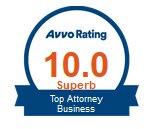Best Toxic Mold Lawyers in Minnesota
Share your needs with us, get contacted by law firms.
Free. Takes 2 min.
Or refine your search by selecting a city:
List of the best lawyers in Minnesota, United States
About Toxic Mold Law in Minnesota, United States
Toxic mold refers to specific types of mold that can produce harmful substances known as mycotoxins. In homes and buildings, toxic mold can result from excess moisture, water damage, or poor ventilation. Exposure to these molds can lead to serious health problems, especially for people with allergies, asthma, or weakened immune systems. In Minnesota, toxic mold issues are a growing concern due to the state's humid summers and cold winters, which can promote mold growth if buildings are not properly maintained. Minnesota law addresses toxic mold in both residential and commercial properties, focusing on tenant rights, landlord responsibilities, insurance claims, and property disclosures.
Why You May Need a Lawyer
Legal help may become necessary in toxic mold situations for several reasons. If you are a tenant dealing with unresolved mold issues in your rental, a lawyer can help enforce your right to safe and habitable housing. Homebuyers who discover hidden mold after closing may need legal representation to address non-disclosure or pursue compensation from sellers. Property owners may face disputes with insurance companies that deny mold damage claims. Employers or employees may require legal advice if mold exposures occur in the workplace. In complex cases involving health problems or significant property damage, legal guidance is critical to ensure your rights are protected and to navigate Minnesota's specific regulations.
Local Laws Overview
Minnesota has a combination of state statutes, public health rules, and building codes that relate to mold problems. Landlords in Minnesota are required by law to maintain rental properties in a condition fit for habitation, which includes addressing water leaks and mold issues. The Minnesota Department of Health provides guidelines for mold remediation and recommends actions for homeowners and renters. Disclosure is required in real estate transactions, meaning sellers must inform buyers about known mold problems. Insurance claims related to mold are governed both by state law and the specific terms of insurance policies, which may limit or exclude certain types of mold damage. While there is not a dedicated "mold law" in Minnesota, laws covering nuisance, habitability, negligence, and property disclosure often apply to toxic mold disputes.
Frequently Asked Questions
What are the health risks associated with toxic mold?
Toxic mold exposure can lead to respiratory issues, allergic reactions, headaches, fatigue, and aggravation of asthma. Prolonged exposure can be more severe, especially for vulnerable groups such as children, the elderly, and those with compromised immune systems.
Who is responsible for mold remediation in a rental property?
In most cases, Minnesota landlords are responsible for maintaining habitable housing and must repair leaks or water damage that lead to mold growth. However, tenants should report problems promptly and may be liable for damages caused by their own negligence.
Are there laws requiring sellers to disclose mold when selling a home?
Yes, Minnesota law obligates sellers to disclose any known material facts that could significantly affect the buyer’s use or enjoyment of the property. This includes prior or existing mold issues.
What should I do if I find mold in my home or rental?
Document the issue with photos and written records, notify your landlord or property manager in writing, and consider contacting a licensed mold inspector or remediation professional. If unresolved, consult a lawyer to discuss your options.
Can I break my lease if my rental has toxic mold?
Minnesota law permits tenants to seek legal remedies, up to and including terminating a lease, if a landlord fails to maintain habitable conditions. Keep documentation of all communications and conditions before proceeding.
Does homeowners’ insurance cover mold damage?
It depends. Many policies exclude mold damage or only cover it if caused by a covered peril, such as a sudden pipe burst. Review your policy carefully and consult with an attorney if your claim is denied.
Can I sue a previous owner for undisclosed mold in my home?
Possible, if you can prove the seller knew of the problem and failed to disclose it as required by Minnesota law. Consult a lawyer to assess your situation and evidence.
Are there government agencies that inspect for mold?
Minnesota does not generally provide public mold inspection services for private homes. The Minnesota Department of Health offers guidance and can answer questions, but inspections are usually handled by private professionals.
What is involved in professional mold remediation in Minnesota?
Remediation involves identifying sources of moisture, repairing leaks, removing affected materials, cleaning, and ensuring proper ventilation. Professionals follow safety and containment protocols to prevent further contamination.
How long do I have to file a legal claim related to toxic mold?
The timeframe depends on the type of claim. Breach of contract or habitability claims typically follow specific statutes of limitations. Early consultation with a lawyer ensures your rights are protected within legal deadlines.
Additional Resources
The following resources can assist individuals seeking more information or legal help regarding toxic mold in Minnesota:
- Minnesota Department of Health - Indoor Air Unit: Offers information on mold prevention, cleanup, and health impacts.
- Legal Aid offices in Minnesota: Provide tenant and consumer protection assistance.
- Minnesota State Bar Association: Source for lawyer referrals and legal guidance.
- City and county housing inspectors: Address habitability complaints in rental housing.
- Professional mold inspection and remediation companies: Certified providers can assess and remediate mold safely.
Next Steps
If you suspect or have confirmed a toxic mold problem, begin by documenting the condition and promptly notifying your landlord or property manager if you rent, or your insurance company if you own. For unresolved issues or if you believe your health or rights have been compromised, contact a lawyer who specializes in real estate, landlord-tenant law, or environmental issues. Bring all relevant documents, such as lease agreements, inspection reports, photos, written communications, and insurance policies to your legal consultation. Acting quickly helps protect your health, financial interests, and legal rights.
Lawzana helps you find the best lawyers and law firms in Minnesota through a curated and pre-screened list of qualified legal professionals. Our platform offers rankings and detailed profiles of attorneys and law firms, allowing you to compare based on practice areas, including Toxic Mold, experience, and client feedback.
Each profile includes a description of the firm's areas of practice, client reviews, team members and partners, year of establishment, spoken languages, office locations, contact information, social media presence, and any published articles or resources. Most firms on our platform speak English and are experienced in both local and international legal matters.
Get a quote from top-rated law firms in Minnesota, United States — quickly, securely, and without unnecessary hassle.
Disclaimer:
The information provided on this page is for general informational purposes only and does not constitute legal advice. While we strive to ensure the accuracy and relevance of the content, legal information may change over time, and interpretations of the law can vary. You should always consult with a qualified legal professional for advice specific to your situation.
We disclaim all liability for actions taken or not taken based on the content of this page. If you believe any information is incorrect or outdated, please contact us, and we will review and update it where appropriate.
Browse toxic mold law firms by city in Minnesota
Refine your search by selecting a city.









